MEPs joined Estonian Prime Minister Kaja Kallas in calling for more EU defence, reduced energy dependence and solidarity with Ukraine in a plenary debate on 9 March.
Opening the debate, Parliament President Roberta Metsola said: “We need to re-assess the European Union’s role in this new world. We need to boost our investment in defence and innovative technologies. This is the time for us to take decisive steps to ensure the security of all Europeans. The time to build a real security and defence union and reduce our dependencies on the Kremlin.”
In the wake of the invasion of Ukraine and as prime minister of a country sharing a nearly 300km border with Russia, Kallas called for increased EU defence, decreased energy dependence and emphasised the importance of the Nato alliance. She also talked about the importance of the future of Ukraine: “It is in our interest that Ukraine becomes more stable, more prosperous and is solidly founded on the rule of law. (…) But it’s not only in our interest to give Ukraine a membership perspective, it is also our moral duty to do so. Ukraine is not fighting for Ukraine, it’s also fighting for Europe.”
She addressed Russian citizens directly, assuring them that EU is not acting against them and the measures are intended to isolate President Vladimir Putin and his government. “We continue to hope for a stable and democratic Russia that is respectful of its neighbours and is governed by a rule of law.”
Josep Borrell, the EU’s foreign affairs chief, said that we have entered a new era and that the consequences of this war would be shaping European policies for years and decades to come. “Defending our liberal values will not be possible unless there is a political commitment and citizens willing to pay a price for this. It would be empty words, unless we are willing to act, to be more united, to be more coordinated and to pay the inevitable price that any kind of structural change will bring.”
Arnaud Danjean (EPP, France) called on EU countries to act in unison: “The Russian invasion of Ukraine is the start of a new era and Europe has to draw the necessary conclusions. What does this mean in practice? (…) We have instruments at our disposal that just need to be used. What we have lacked are not tools and instruments. No, what we’ve lacked is unanimous, political will from our member states.”
Nathalie Loiseau (Renew Europe, France) said that the action taken so far is insufficient. “We see that this is not enough. We need to do more to defend the Ukrainian people and to defend ourselves. We need to use less Russian oil and gas. We need to provide more weapons to Ukraine. (…) We need to protect ourselves by making significant efforts to improve our defence spending.”
Iratxe García Pérez (Spain, S&D) said: “We should never again sacrifice human rights for gas” and underlined the need for better energy infrastructure. Turning to refugees, she said that the EU needs a roadmap to correct the mistakes made in the refugee crisis of 2015: “Now we have to agree on a fair distribution of refugees and establish a proper mechanism for reception. This is an opportunity to design a new migration policy which is based, this time, on responsibility and solidarity.”
Ska Keller (Greens/EFA, Germany) said that Putin is waging war against Europe as a whole; against democracy, rule of law and freedoms which are universal values. “As a European Union, as a Union built for peace, we must act for European security.”
Anna Fotyga (ECR, Poland) agreed, noting that Ukrainians are fighting a just war as they defend their territory, their families and innocent civilians against war crimes and crimes against humanity. “The future security of our continent, and probably global security, very much depends on the result of this war. We have to do our utmost to stop it.”
Calling for more military aid to Ukraine, Jaak Madison (ID, Estonia) said : “The sooner that we end the war in Ukraine, the sooner that Russia will be back in their own territory, the sooner those refugees [..] can go back to their homes.”
However, Martin Schirdewan (The Left, Germany) said that the use of military force is not the solution to this conflict: “If we want to offer our children a peaceful future, we have to take concrete steps to disarm and to strengthen international organisations; to put an end to weapons of mass destruction. And we will have to work on a security architecture that is based on international law and that allows for conflicts to be resolved peacefully through diplomacy:”
Source: European Parliament – Press release
Ukraine: EU steps up solidarity with those fleeing war
- The Commission outlines today the very substantial support the EU is making available to help people fleeing war in Ukraine, as well as the EU countries receiving them. In the face of Russia’s unprovoked and unjustified military invasion of Ukraine, European solidarity in action is helping people through direct humanitarian aid, emergency civil protection assistance, support at the border, as well as a clear legal status allowing those fleeing the war to receive immediate protection in the EU.The assistance available includes:
- Humanitarian support: As President von der Leyen has announced, €500 million from the EU budget is being directed to deal with the tragic humanitarian consequences of the war, both inside Ukraine and beyond. Of this, €90 million in humanitarian aid including €85 million for Ukraine and €5 million for Moldova, is already under way to provide food, as well as water, healthcare, shelter, and to help cover the basic needs of the most vulnerable. Through the largest ever activation of the EU Civil Protection Mechanism in response to an emergency, millions of items including vehicles, medical kits, tents, blankets, and sleeping bags have already reached those in need in Ukraine, while further assistance is delivered to neighbouring Moldova, Poland and Slovakia to support all those fleeing the war.
- Support for border management: The Commission has issued operational guidelines to help Member States’ border guards in managing arrivals at the borders with Ukraine efficiently and reduce waiting time while maintaining a high level of security. EU agencies are also providing extra staff and expertise to support Member States, with for instance 49 Frontex staff deployed at EU-Ukraine and Moldova-Ukraine borders and an extra 162 staff being deployed to Romania. Moldova will also receive an additional €15 million to help manage the situation.
- Protection for those fleeing and support for reception capacity: In record time the EU unanimously agreed to activate the Temporary Protection Directive to bring clarity and security to people in need, offering rights to welfare support, access to the job market and education. Central to this approach is the solidarity between Member States. A ‘Solidarity Platform’, where Member States can exchange information about reception capacity will be coordinated by the Commission. The Home Affairs funds for 2021-27 will also bring significant extra resources for Member States to ensure adequate reception facilities and effective asylum procedures. The Commission is also proposing to prolong the implementation period for the money available to Member States under the 2014-2020 Home Affairs funds, which would release around €420 million in additional support. The Commission will publish on the Europa website information to help citizens and the private sector ensure that their support to those fleeing the war can come through trusted organisations and match the needs.
- Cohesion policy action for refugees in Europe: The Commission is also adopting the “Cohesion’s Action for Refugees in Europe” (CARE) legislative proposal. This will bring additional flexibility to finance a wide range of measures supporting people fleeing Ukraine, from the European Regional Development Fund (ERDF), the European Social Fund (ESF) and the Fund for the European Aid to the Most Deprived (FEAD). For example, these cohesion funds can be spent on investments in education, employment, housing, health and childcare services, and in the case of FEAD, on basic material assistance like food and clothing. To further support Member States, the exceptional 100% co-financing rate applied in response to the pandemic will be extended by a year. Moreover, around €10 billion from the 2022 Recovery Assistance for Cohesion and the Territories of Europe (‘REACT-EU’) funds is readily available and can also be used to finance actions to support those fleeing Ukraine.

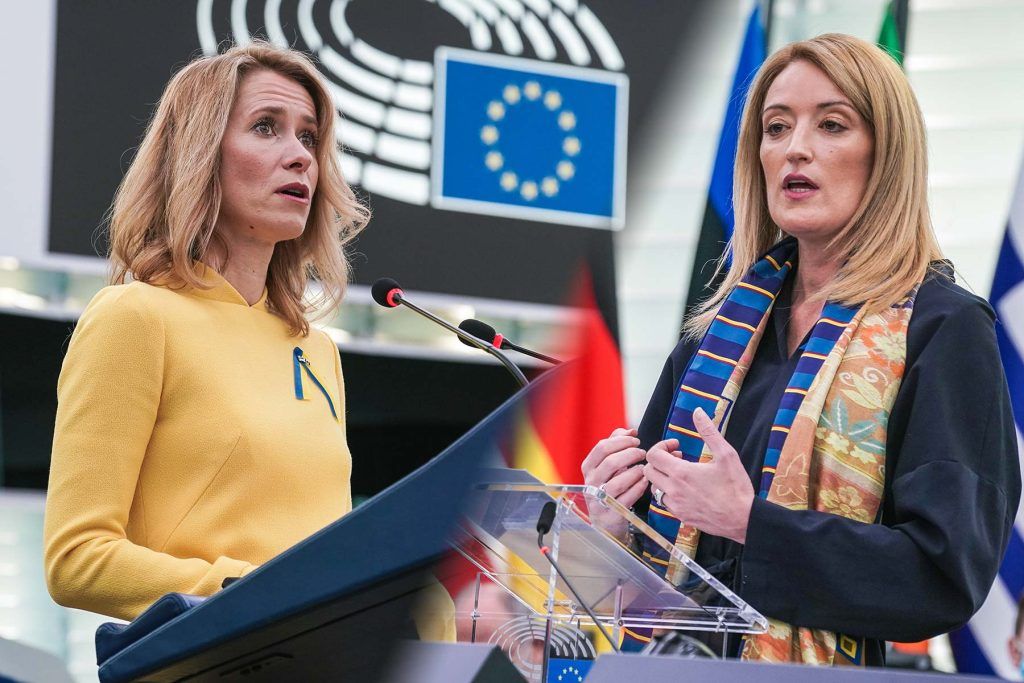
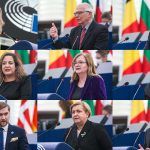
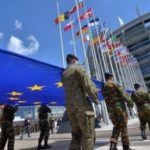
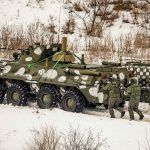
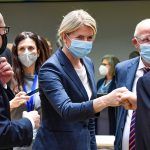
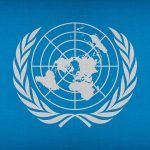
Leave a Reply